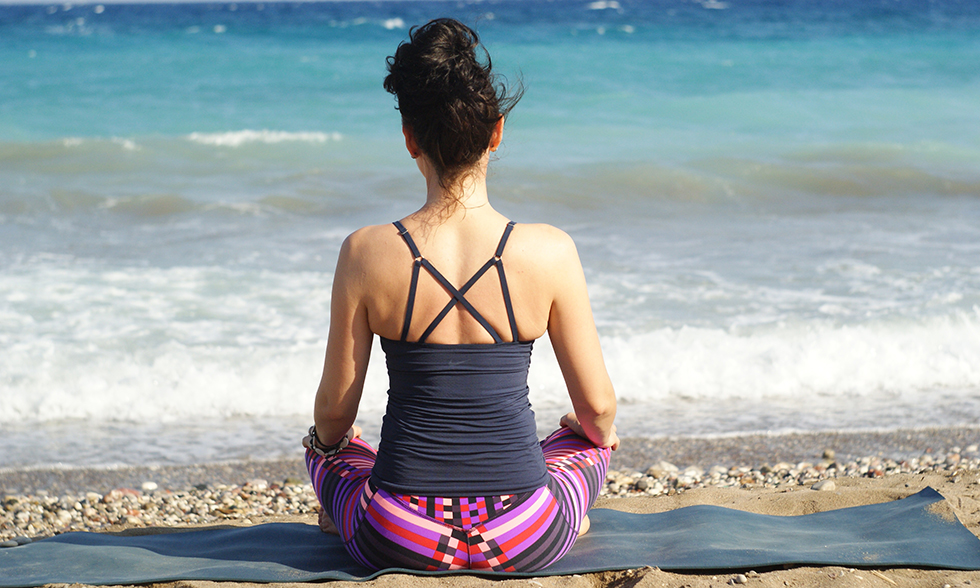The coronavirus crisis caught us all off guard. Our politicians were forced to make quick decisions that are having a huge impact on our everyday lives. We suddenly have to adapt to a new situation, at a time when we’re also feeling a lot of fear and anxiety. It’s therefore important that as well as looking after our physical health, we pay attention to our mental health. Now that the initial shock has subsided, it’s time to take back control and actively work on your mental wellbeing. Here are our 5 top tips for looking after yourself!
1. Practice gratitude
You might be fed up of hearing that we need to make the best of the COVID-19 crisis. That’s easier said than done, and it can be hard to see the positive side of the situation. If you or your friends belong to a risk group, an optimistic approach might seem particularly misguided.
A change of perspective might help here. Instead of trying to find positive things about the crisis itself, focus on unrelated things that enrich your everyday life. Practicing gratitude doesn’t mean trying to conjure something good out of something bad, but rather focusing more on things that are already good.
Why not try writing down 5 things you are grateful for each night before you go to bed? Be creative! Perhaps a nice chat with a friend comes to mind, or a delicious meal. It could even be something as simple as feeling the sun shining on your face.
2. Plan nice activities
The current safety precautions mean huge changes for most of us: we can’t go to work or send our children to school. Even if we support these measures, it’s understandable that it feels like a loss of freedom. Not feeling in control can have a huge impact on our mental wellbeing.
It’s therefore important to plan things we enjoy into our everyday routine. You might have to be a bit more creative than usual to work round the restrictions. How about reading, talking on the phone with a friend, trying out a new recipe, watching your favourite TV show, going on a bike tour, or starting an online course?
Try to make time for at least one nice activity a day. You might even find a new hobby! We promise that you’ll soon feel the positive effect on your mental health.
3. Sleep well!
A good night’s sleep is important for feeling rested and having enough energy for the day ahead. It’s not surprising that many of us are currently having trouble sleeping. Perhaps you’re finding it hard to get to sleep, or keep waking up during the night. Fortunately, there are plenty of things you can do to improve your sleep.
First, check your sleep hygiene. Do you always go to bed and get up at the same time? You might need to set an alarm clock, even if you don’t actually have to get up early. Do you have a sleep ritual that you do every night before bed? You could try meditation exercises. Do you use your bed for anything other than sleeping? Try not to use it for other things like working or watching TV. It’s important to avoid blue light from screens before bedtime.
You should also avoid exercising and eating for a few hours before bed, as these activities activate your body and can keep you awake. Pay attention to your caffeine consumption. Try not to drink more than 3-4 cups of coffee a day, and avoid drinking caffeine at all from around 2 pm.
4. Live by your values
You might not be able to pursue concrete goals right now, but you can do other things that express the same values. Our values serve as a compass and show us which direction is right for us. They are not affected by the pandemic.
For example, suppose you’d planned a trip to Asia and are now unable to go. The main value behind your love of travel might be curiosity. You can still pursue this value, for example by learning a new language or buying a book about culture. Of course it’s not the same, but it follows the same value and fulfils the same need.
Other common values are love, compassion, social connection, and self-care (anything you do for yourself and your well-being). Ask yourself: what are my values? Which values have carried me through life so far? How could I live out my values despite the current pandemic?
5. Stay in touch
Humans are social beings: we need closeness and contact to feel comfortable. It’s very important that you make sure to stay in touch with family and friends despite social distancing. Technology is our saviour here. You can chat and send voice messages. Try to make appointments for Skype or phone calls – this can help give your everyday life structure.
Another way to feel more connected is through compassion meditations. You could try an exercise known as “Metta meditation”. Close your eyes and focus first on feeling love and compassion for yourself. Then extend this compassion further and further: first to friends, then to acquaintances, then to the city and country you live in, and finally to the whole world.
We hope that these tips gave you some inspiration for coping with the current situation. Have fun trying them out, and good luck with strengthening your mental wellbeing!


